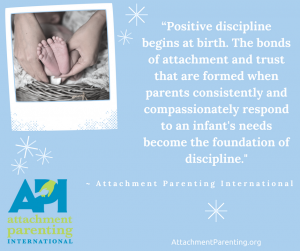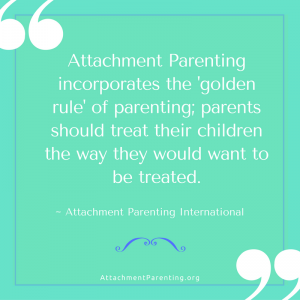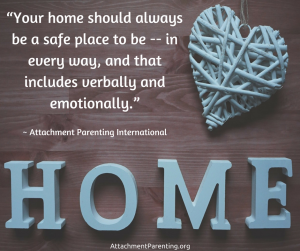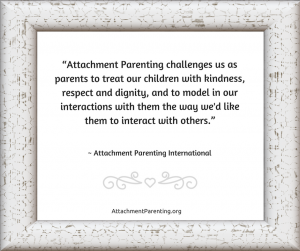Category: Engage in Nighttime Parenting
Editor’s pick: How your childhood shaped your adult personality
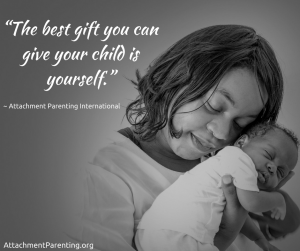 Parenting is largely undervalued in our society. So much discussion among politicians and policymakers centers on public education, gender equality, and poverty alleviation. These are all important areas, but parent support is glaringly missing from the list…
Parenting is largely undervalued in our society. So much discussion among politicians and policymakers centers on public education, gender equality, and poverty alleviation. These are all important areas, but parent support is glaringly missing from the list…
When I refer to parent support, I mean research-backed parenting education for all parents, regardless of income class or at-risk group.
Relatively few parents seek out parenting classes when they’re not court-ordered. Many parents do pick up a parenting book from time to time, or seek out support from Facebook groups, or search for specific parenting questions on the Internet. But there is much to be considered whenever any parent solicits advice in how to raise their child. Most parents don’t feel they have the time do the homework necessary to make sure their references are up-to-date, accurate, and aligned with their family values and personal parenting goals.
Media Analysis Guidelines for Parents
It’s important that we all learn how to read between the lines on any media report about parenting, so we can make informed decisions on how to raise our children. Attachment Parenting International (API) created these guidelines to help parents to be able to better discern appropriate resources amid the clutter of information that bombards us everyday:
What’s fact or fiction in parenting news?
API supports parents in raising their children in a way that meets all of their needs for healthy development, not only physically but also socioemotionally. Growing up without a close, warm, trusting, and sensitively responsive attachment to the parent can have serious, lifelong consequences for a child. These children grow into adults who then struggle with raising their own children in a way that is warm and loving. In many ways, we could view this as a mental health crisis.
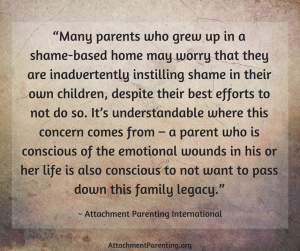 Not only that, but research also demonstrates that certain childhood events can alter our biological stress responses, translating into physical health problems not only in the affected individual but in his or her DNA with the possibility of being passed down the family tree through epigenetics. From this perspective, the lack of consistent parenting education available and promoted to all parents is a public health crisis on many levels.
Not only that, but research also demonstrates that certain childhood events can alter our biological stress responses, translating into physical health problems not only in the affected individual but in his or her DNA with the possibility of being passed down the family tree through epigenetics. From this perspective, the lack of consistent parenting education available and promoted to all parents is a public health crisis on many levels.
Attachment Matters
API explores the effects of insecure childhood attachment on adults in-depth in our latest ebook, Attachment Matters. Receive your copy of this ebook with a donation of $25 or more to API.
To get a better feel for the specific effects of parenting that is not in line with research, this API Editor’s Pick highlights the Psych Central post, “Unloved in Childhood: 10 Common Effects on Your Adult Self” by Peg Streep, a parenting book author from New York City, USA. It’s important to note that while this post refers specifically to mothers and daughters, the effects of a son feeling unloved is much the same. These 10 effects include:
- Insecure attachment
- Undeveloped emotional intelligence
- Impaired sense of self
- Lack of trust
- Difficulties with boundaries
- Tendency toward toxic friends and partners
- Fear of failure
- Feelings of isolation
- Extreme sensitivity
- Inner conflict.
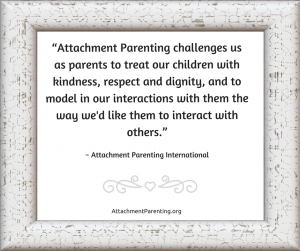 What I particularly like about this post is how it draws attention to the fact that the problem is not so much how well the parent perceives he or she loves the child, but rather, what’s important to that child’s development is the sense of love from the child’s perspective. It’s all about how the child perceives he or she is loved her by the parent. That’s an important distinction.
What I particularly like about this post is how it draws attention to the fact that the problem is not so much how well the parent perceives he or she loves the child, but rather, what’s important to that child’s development is the sense of love from the child’s perspective. It’s all about how the child perceives he or she is loved her by the parent. That’s an important distinction.
The author has so much to impart on this subject, so be sure to read the entire post, but here’s a quote I found especially enlightening:
“Because the culture stubbornly believes that all mothers are loving and that mothering is instinctual, the unloved daughter mistakenly believes she’s the only child on the planet to find herself in this predicament. As a result, she feels isolated and afraid, and is likely to continue to self-isolate because of her deep shame. She’s not likely to tell anyone. More than anything, she wants to belong to the tribe — those girls who hug their moms and laugh with them.” ~ Peg Streep, Psych Central
Parents, I urge you to be the parent whose children — no matter their age — finds it easy to laugh with you and who feels completely comfortable in seeking out a hug with you anytime. Don’t be afraid to be warm toward your child, don’t be afraid to offer comfort to your child night and day, don’t be afraid to use positive discipline rather than spanking or timeout, and don’t be afraid to be different from your friends and family. Seek out your free parenting support from a local API Support Group or the API Warmline.
Attachment Parenting as the golden rule of parenting
What family legacy are you passing on to your children?
What about boys and Attachment Parenting?
“As a culture, we have always had different perceptions and expectations of boys. People often fear that if boys are nurtured too much, it somehow warps their personalities and makes them too dependent and too sensitive. Conventional attitudes about boys permeate all aspects of society — parents, grandparents, teachers, and coaches — and has created…a ‘boy code’: myths that boys’ behavior is driven solely by their hormones and not the environment, boys need to learn to be tough at an early age, and so on. This code has only served to force boys to become disconnected from their feelings — less sensitive and more aggressive.
New research has begun to reverse this trend by emphasizing the importance of mothers and fathers in nurturing strong emotional connections with their sons.” ~ Attached at the Heart: Eight Proven Parenting Principles for Raising Connected and Compassionate Children
by Barbara Nicholson & Lysa Parker, API’s cofounders
Learn what this new research says, which directly makes the case for Attachment Parenting of our sons. Purchase your copy through the Amazon link above to have a portion of the proceeds benefit Attachment Parenting International (API).
Home should be safe in every way
Understanding Shame, part 4: Growing up shame-based
Editor’s note: This week, we offer you a 5-part series — originating in The Attached Family online magazine’s “Parenting Without Shame” issue — to help you better understand the development of toxic shame. Part 1 explained how trauma includes 3 components: Fear, Disconnection, and Shame. Part 2 explored Fear. Part 3 defined Disconnection. In this Part 4, we take a look at what it means to become shame-based.
Shame is a visceral and pervasive feeling of being fundamentally flawed and inadequate as a human being.
Shame is primarily relational: Although shame leaves us feeling absolutely alone, its roots lie in an implicit conviction that we are somehow unworthy of having meaningful relationships with other people.
Shame vs Guilt
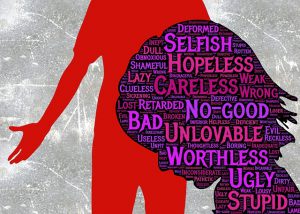 Shame is often confused with guilt, but with guilt, we feel bad about things we have done. With shame, we feel bad about who we are.
Shame is often confused with guilt, but with guilt, we feel bad about things we have done. With shame, we feel bad about who we are.
Guilt is about our actions. Shame is about our being.
Shame is mediated by the emotional networks of the brain, so although shame is typically accompanied by self-critical thoughts like “I am stupid/useless/fat/pathetic,” it is ultimately lived as an embodied experience that resides deep beneath our awareness and sucks us into the psychological equivalent of a black hole.
When Shame Becomes Toxic
Shame is a product of evolution, and it is experienced as a passing emotion in almost everybody. It exists to tell us that we are at risk of losing important social relationships, or that we might be thrown out of our group.
However, if we’ve been traumatized, then shame becomes indelibly interwoven with our implicit sense of who we are, whereupon our identity becomes “shame-based.”
There are several routes to becoming shame-based:
- Shame can originate outside of us — When we are made to feel inadequate by our family, caregivers, teachers, peers, culture, or socio-political environment, we absorb that shame and make it our own. In this case, being shamed constitutes the original painful and frightening experience around which our trauma-world is built.
- Human infants need sensitive and responsive nurturing from caregivers — When this need is not met, children develop an embodied and nonverbal sense of being inadequate. They also develop an embodied and nonverbal sense of inadequacy around their actual need for nurturing — implicitly feeling that there must be something wrong with them for having the needs.
- Shame can originate inside us as a response to more overt traumatizing experiences — Painful and frightening experiences occur that have nothing to do with being shamed. However, we have evolved a need to understand why these things have happened to us, and for various reasons, we tend to believe that we are at fault. For example, children whose parents divorce commonly feel that if they had been “better,” their parents would have stayed together.
- Once we’ve entered a trauma-world, shame can be created in response to our own behavior — There are times when we know we are over-reacting. However, because we aren’t aware that our fear system is hyper-sensitive, we take our behavior as evidence of our own supposed inadequacy. In addition, when we bury parts of ourselves in order to make ourselves acceptable to others, we implicitly sense that we are being inauthentic, which in turn creates shame.
Irrespective of how our shame originates, once we’ve become shame-based, we can’t recognize shame for what it is. Thus, we see ourselves through a distorted lens. As a result, we are likely to experience ourselves as contemptible and feel a victim to our own believed inadequacy.
What Doesn’t Work to Heal Shame
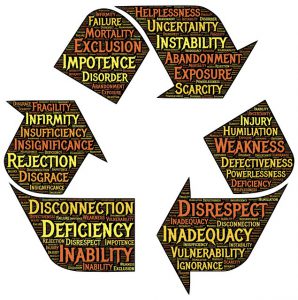 In this state, we get sucked into a downward spiral of shame. We can become even more desperate to obliterate the parts of ourselves that we believe make us inadequate, redoubling our efforts to shame those parts into submission. However, when we use shame against ourselves, we retraumatize ourselves. Then, instead of fostering change, we reinforce the status quo and fortify the walls of our trauma-world.
In this state, we get sucked into a downward spiral of shame. We can become even more desperate to obliterate the parts of ourselves that we believe make us inadequate, redoubling our efforts to shame those parts into submission. However, when we use shame against ourselves, we retraumatize ourselves. Then, instead of fostering change, we reinforce the status quo and fortify the walls of our trauma-world.
At the same time, we try to cajole ourselves into success, believing that if we can force ourselves to become more than we are — or ideally perfect — then the gnawing pain of being shame-based will abate. However, if we are shame-based, then no amount of success will be enough. No matter what we do, we are never enough.
Being shame-based doesn’t only poison our relationship with ourselves, it also poisons our relationships with others. When we are shame-based, we will be terrified that if others get to know us, they will see us as the inadequate person we believe ourselves to be. In an unconscious attempt to prevent that from happening, we may put up barriers, push people away, and sabotage relationships. Alternatively, we may try to control others, hoping that we can prevent them from doing anything that might bring our shame to the surface.
We are generally not conscious of what we are doing, or indeed why we are doing it. However, we are left with a murky feeling that our relationships lack authenticity, trust, and intimacy. As a result, we feel increasingly isolated.
Also, because human beings are such a profoundly social species, when we don’t have meaningful relationships, we feel sub-human, and that, in turn, exacerbates our shame.
In short, shame creates more shame. Shame also generates isolation and fear. And shame reinforces the need to disconnect. Ultimately, shame keeps us locked in our trauma-worlds.
Tomorrow, in Part 4, we’ll explore what does work in healing shame
Photo sources: Pixabay.com

